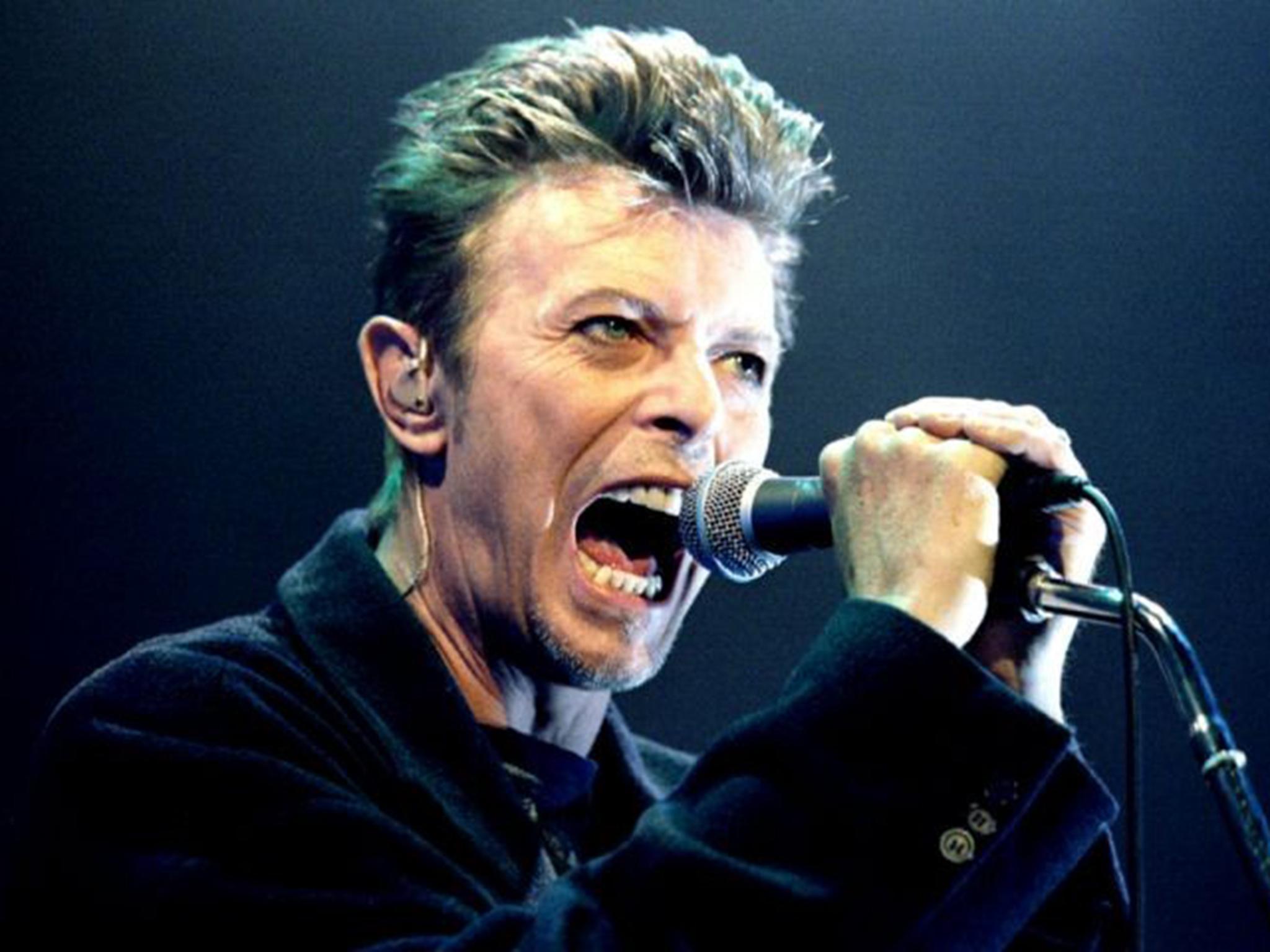Why David Bowie and Leonard Cohen must win at Brits 2017
If Bowie and Cohen win posthumously, it at least shows that the Brit Awards are honouring rock music heritage, at an evening in which lifetime achievement awards don't include dead people

It’s not just older rock fans who will have been delighted at the weekend’s news that David Bowie and Leonard Cohen are up for Brit Awards. Fans of all ages have acknowledged not just that their deaths in 2016 robbed music of two of its greatest artists but also that their last albums were among their most fascinating.
Bowie’s Blackstar mixed a haunting melancholy with jazz infusions and some of his more introspective and autobiographical lyrics. Cohen’s You Want It Darker had the hauntingly poignant self-examination and sense of letting-go of a man who knew he was close to death. Both artists indeed were aware of their severe health problems while making these albums. Cohen even had to sit in a medical chair to sing during the recording. These are not exactly rock ’n’ roll attributes, and the unusual circumstances of both recordings added a dimension, rare in contemporary albums.
So they would be worthy winners in the British and International Solo Artist category. Bowie is also up for Best British Album on the strength of Blackstar. But, of course, it is for much more than that album. The unspoken truth is that the Brit Awards want to acknowledge and pay tribute to his entire career. The same applies to Cohen. Bowie, I am confident, will win both the awards he is up for. Cohen, if there is any justice, will win his award.
There’s more to these nominations than one last album. There’s more than sentiment, too. The Brits, the best known, most glamorous and most publicised of all the music awards ceremonies, are doing exactly what they should do. They are making a statement about music and music’s heritage.
Heritage seems an inappropriate word to use about rock music, always something we have thought of as young, spontaneous and of the moment. But the big record companies now have what they do indeed term “heritage acts”, and executives whose sole responsibility is to look after those heritage acts and their highly lucrative back catalogues. Rock and pop music have been around a long time. They do have a “heritage”.
Bowie and Cohen had both been making music for the best part of half a century and, much more, had captured the minds and hearts of more than one generation with their songs, as well as influencing their peers and – in Bowie’s case, certainly – changing the nature of live performance with his theatricality and costumes.
How could the Brits claim to be the premier music awards and not pay homage to this? Yes, it does look slightly odd at first to see that the late David Bowie will be competing with breakthrough grime artist Skepta among others, and the late octogenarian Leonard Cohen will be up against The Weeknd, Bruno Mars and others. But that is rock music now. The young are up against the seriously old. Those just starting out, and never more alive, are competing with the deceased.
After a year in which we lost icons of music, the Brits, that most youthful and contemporary awards ceremony, should reconsider its purpose and, not least with the demographic of its prime time TV audience in mind, should think more about that musical heritage.
George Michael was reportedly working on a new album when he died. If and when it is released, it will undoubtedly put him among the contenders for Best British Male in the 2018 Brits. Status Quo’s Rick Parfitt, another of 2016’s rock deaths, may not get an acknowledgement.
The Brits needs to think about death. The Brit Awards committee needs to think about how it will honour George Michael, if there is no posthumous album, about how the likes of Rick Parfitt get their tribute, about how the deaths of rock legends, which can only become more commonplace as the years go by, are commemorated at this evening known for its razzamatazz, colour, lights, dance and passion, and an evening in which lifetime achievement awards don’t include dead people – yet.
David Bowie: A life in albums
Show all 27Subtly though, the Brits are changing in this regard. If Bowie wins British Male Solo Artist next month, it will clearly not be because his album dominated the musical landscape for 12 months, and it may not even have been universally acknowledged as the best album of the year. It will be because this was a man and a career that simply has to be officially lauded at music’s premier occasion. The award will in reality, albeit unspoken, not just be for Blackstar. It will also be for Ziggy Stardust, for Hunky Dory, for Let’s Dance, for Low, for Heroes, for a 50-year career. It will be an expression of love from the music community for its own hero.
There isn’t an Expression of Love award, so we can make do with the pretence that this is just a plaudit for the work of one 12-month period. But few will really believe that, or want to believe it. Most will know that honouring David Bowie and Leonard Cohen at the Brits is one way, just one way, of saying goodbye and thanks so very much.
The Brit Awards 2017 will take place on 22 February
Subscribe to Independent Premium to bookmark this article
Want to bookmark your favourite articles and stories to read or reference later? Start your Independent Premium subscription today.

Join our commenting forum
Join thought-provoking conversations, follow other Independent readers and see their replies